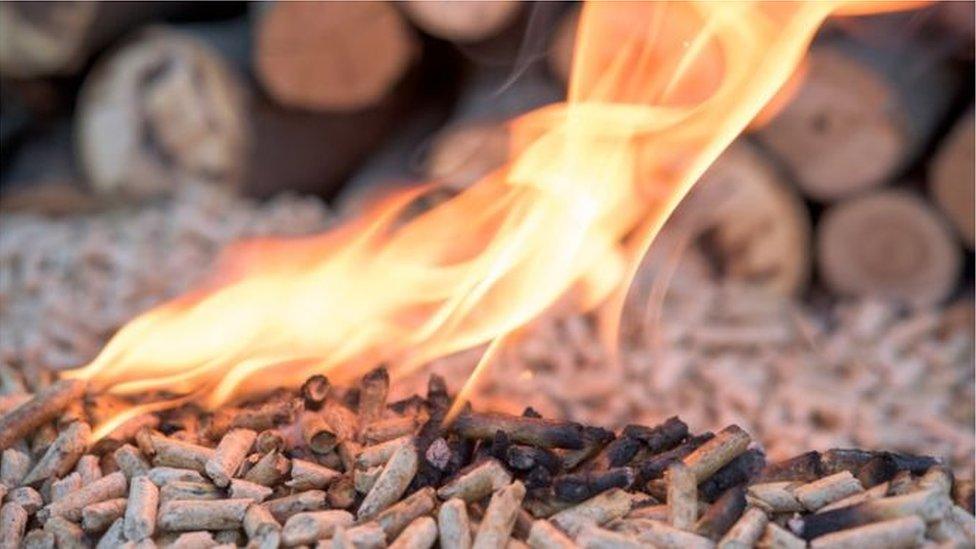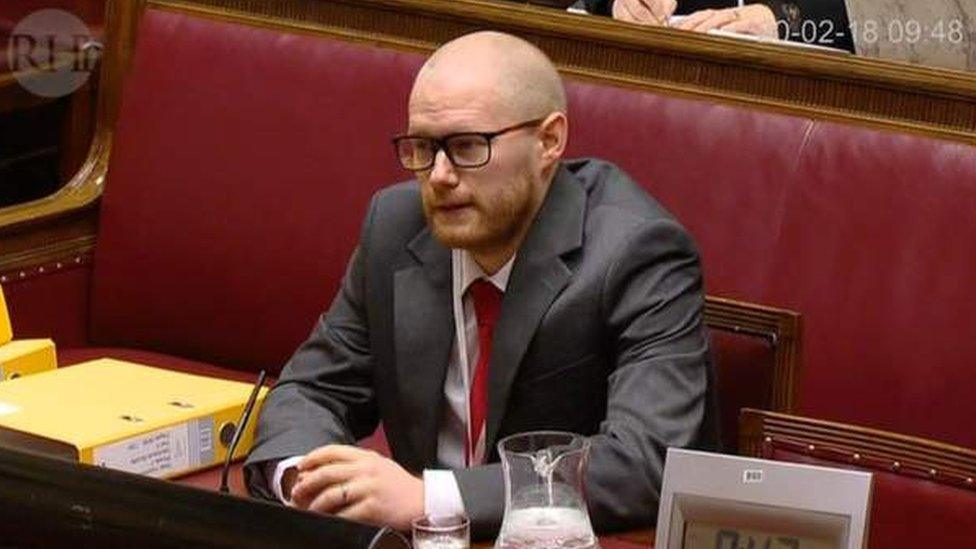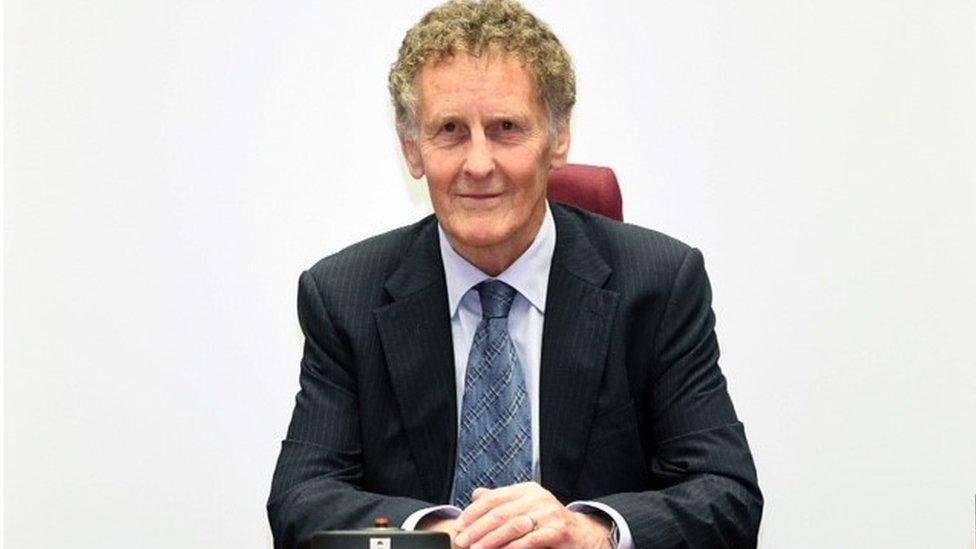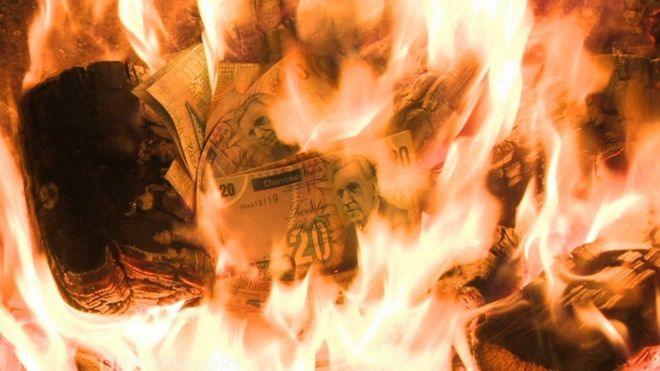RHI inquiry: 'Ministers should be more involved'
- Published

Flaws in setting the scheme's subsidy rate left it open to abuse as claimants could earn more cash the more fuel they burned
The man who ran a botched green energy scheme says ministers should be more fully involved in policy making.
Peter Hutchinson made the remarks as he concluded his evidence to the public inquiry on the Renewable heating Incentive (RHI).
The civil servant was the only full time member of staff running the complex subsidy scheme.
He said there were many lessons to be learned from the debacle.
The public inquiry was set up last year to investigate the RHI scheme after costs spiralled.
The scheme was an initiative offering financial incentives to encourage businesses to switch to using renewable fuels to generate heat.
But critical flaws meant that its claimants could earn substantial returns, far greater than intended.

Peter Hutchinson was the only full time official dedicated to the scheme
That came at the taxpayer's expense and the most recent estimate put the projected overspend at £700m over 20 years, up from an original figure of £490m.
Mr Hutchinson told the inquiry that better project management and more skilled staff would also have helped.
He said there was a requirement on civil servants to give ministers concise briefings, but greater involvement in policy making by ministers might help prevent a repeat of the mistakes.
This afternoon the inquiry heard that both he and his part-time colleague Joanne McCutcheon were both allowed to leave the RHI branch around the same time.
He said his colleague had raised it with their boss John Mills and told him "it wasn't the best idea".
'Totally disjointed system'
Inquiry counsel Donal Lunny suggested his departure had left "an experience void".
The inquiry also heard evidence about why a promised review of the scheme scheduled for January 2014 never took place.
Mr Hutchinson said there was "no formal arrangement" for it just corporate knowledge that it should be done.
The commitment was key to departmental and EU permission for the green energy scheme.
Mr Hutchinson said it hadn't happened because the tiny department had been heavily involved in other things.
He said there was also no clarity around a budget for the work and no direction from above to begin it.
Earlier, the inquiry heard that civil servants got a "clear warning" of a key problem in a botched green energy scheme.
It was told that the issue of multiple smaller boilers being installed to maximise subsidy was raised with officials in the Department of Enterprise Trade and Investment.
The warning was given in 2013, two years before the scheme imploded.
The inquiry also heard the Department of Agriculture described as "high pressure salesmen" for the RHI scheme.

Sir Patrick Coghlin is chairing the RHI Inquiry, which is expected to last for several months
The inquiry heard that the College of Agriculture Food and Rural Enterprise (CAFRE) had promoted biomass at 17 events.
It has already been told that the biomass industry quickly worked out the scheme's potential.
This included an offer to the Department of Justice to fit out the planned police and fire training camp with multiple boilers.
Sir Patrick said this suggested that there was "no co-ordinated communication" between government departments.
He asked whether the justice or agriculture departments had flagged up the lucrative payments that could be had from the scheme.
"It just seems to a totally disjointed system," said Sir Patrick.
- Published20 February 2018

- Published7 November 2017

- Published7 November 2017

- Published23 October 2019
